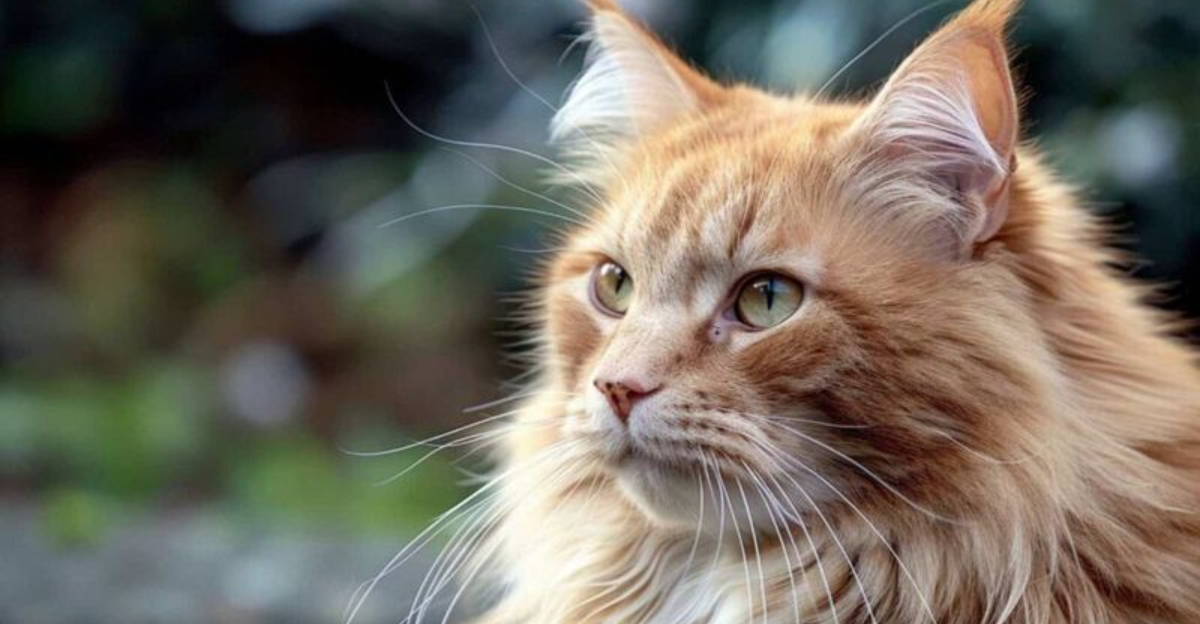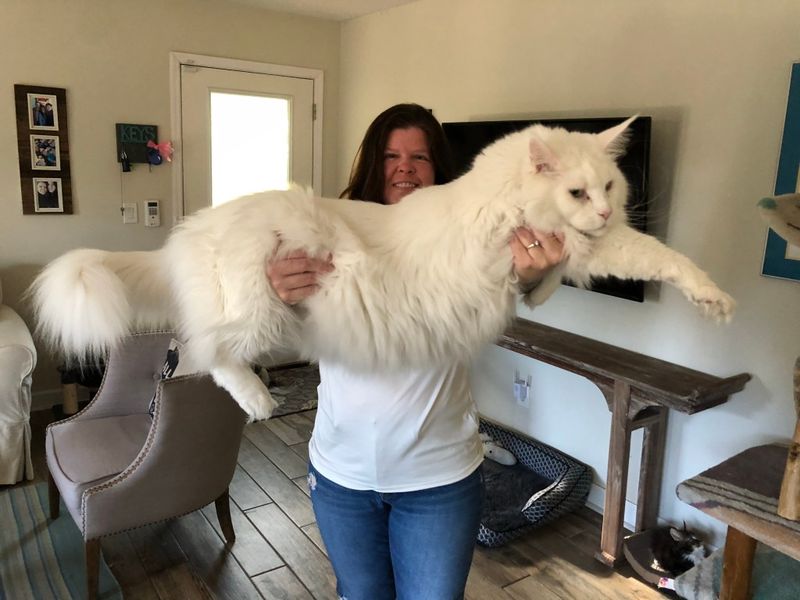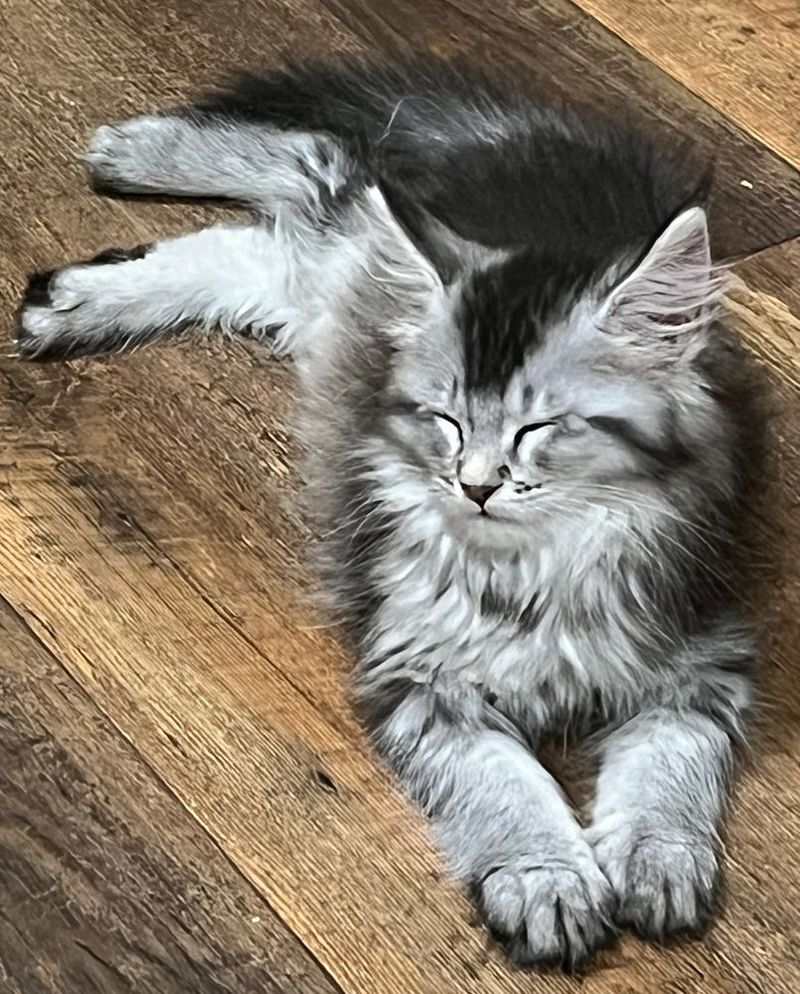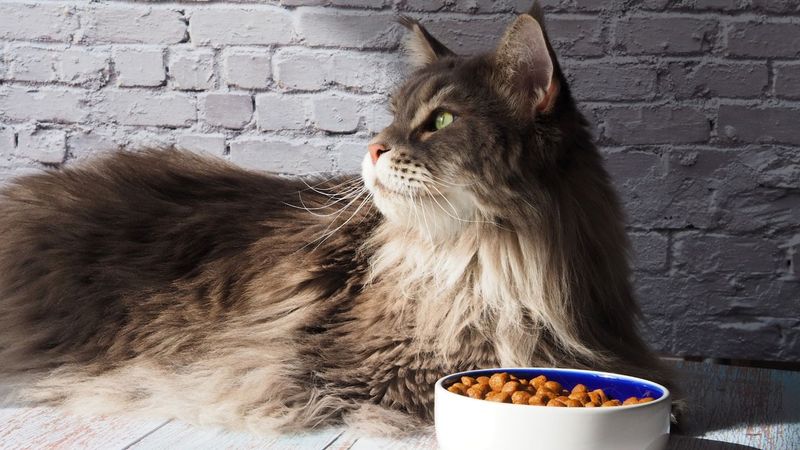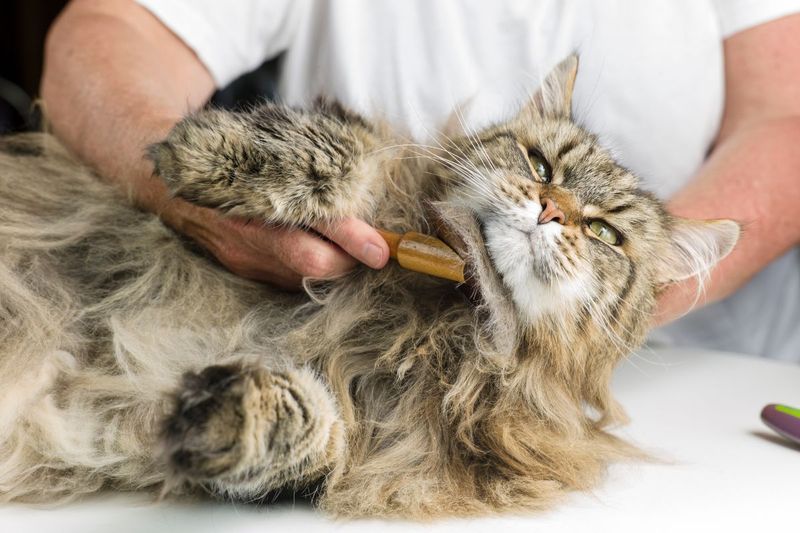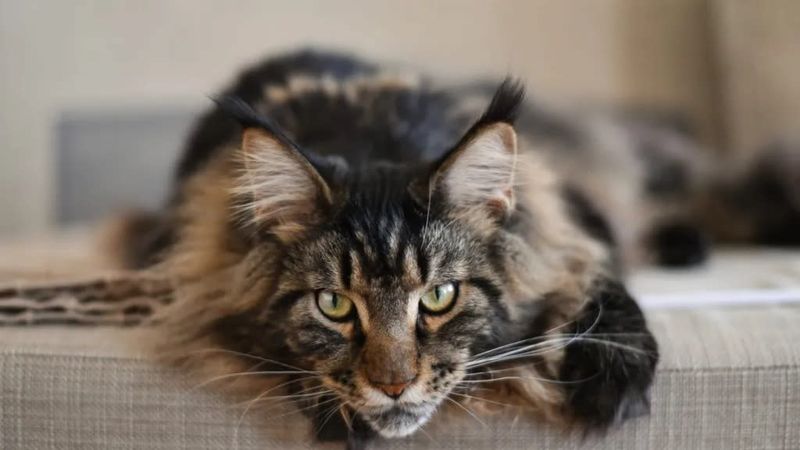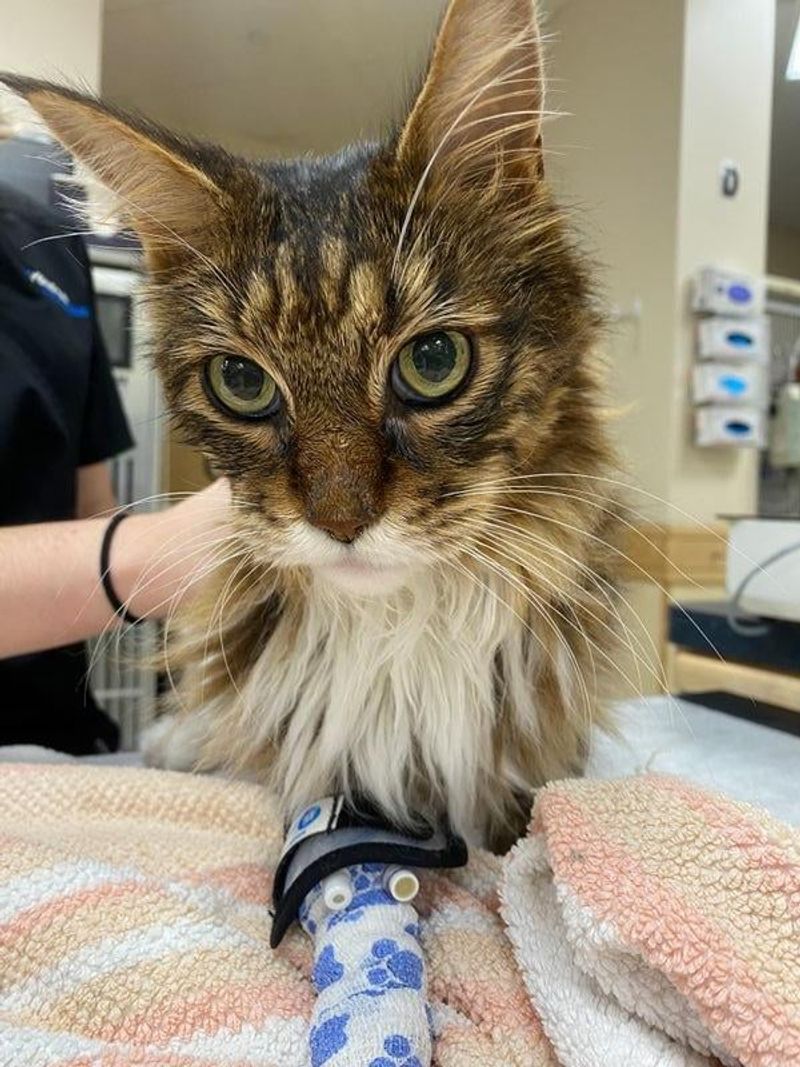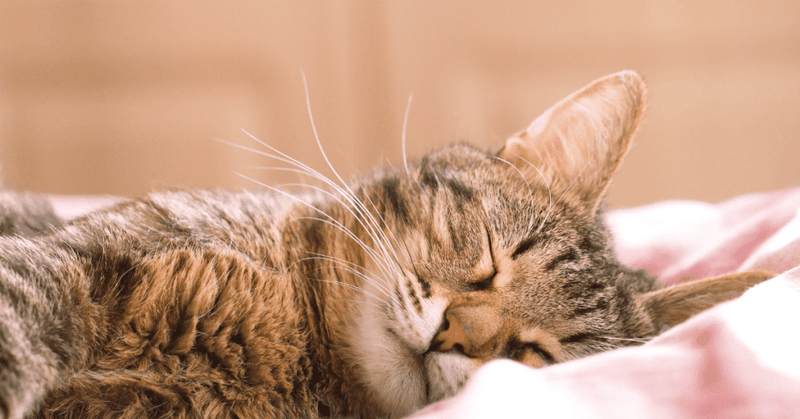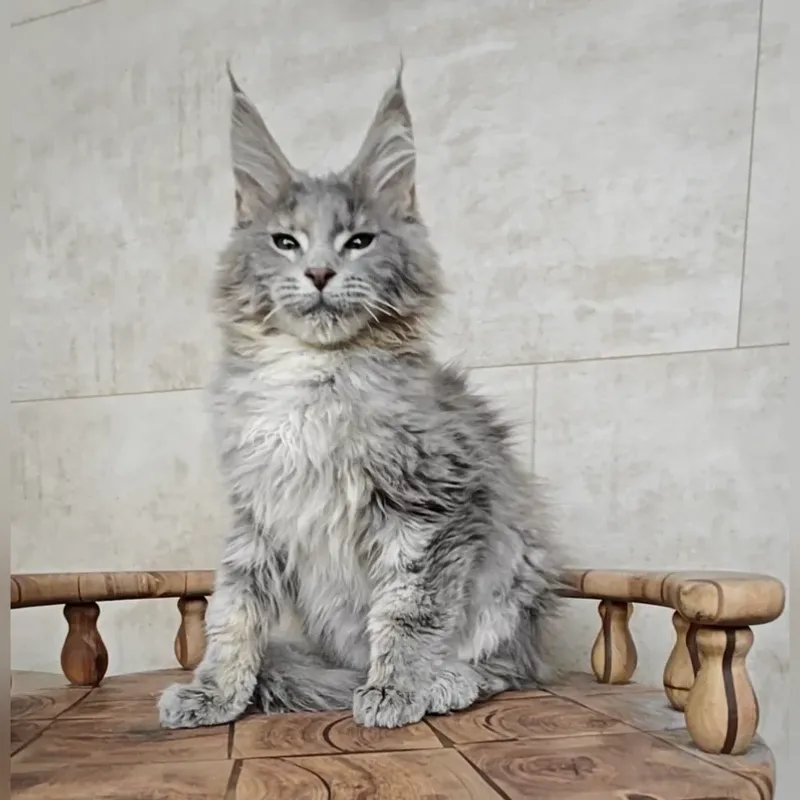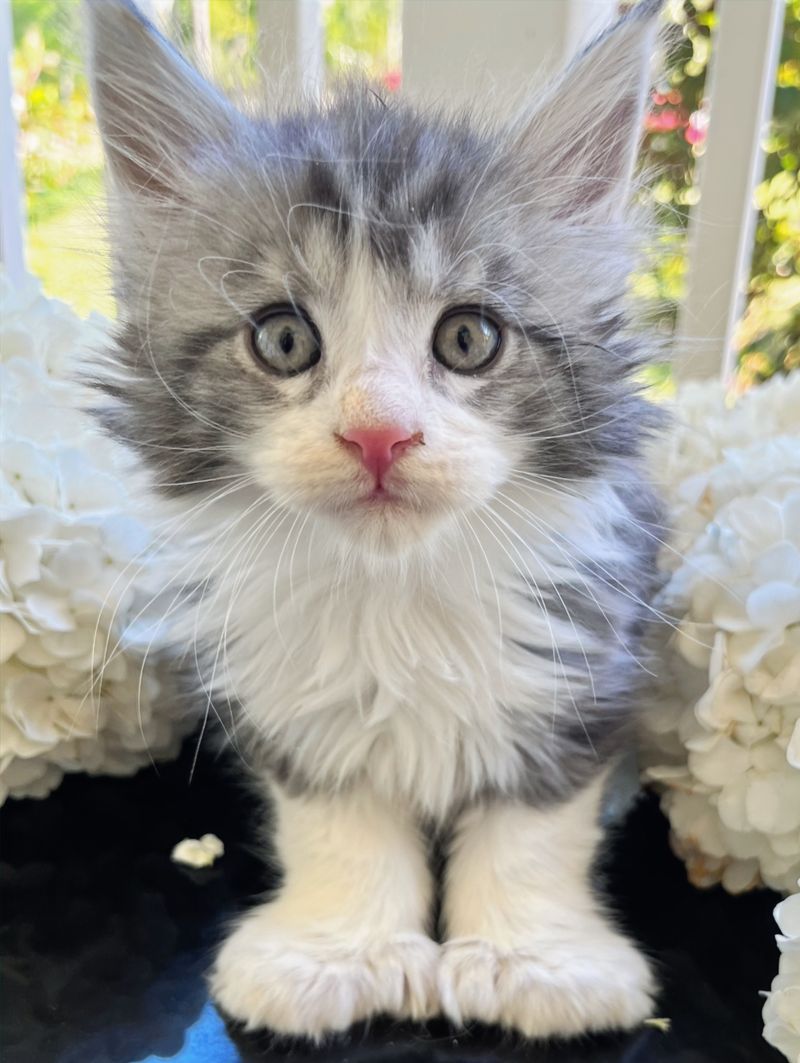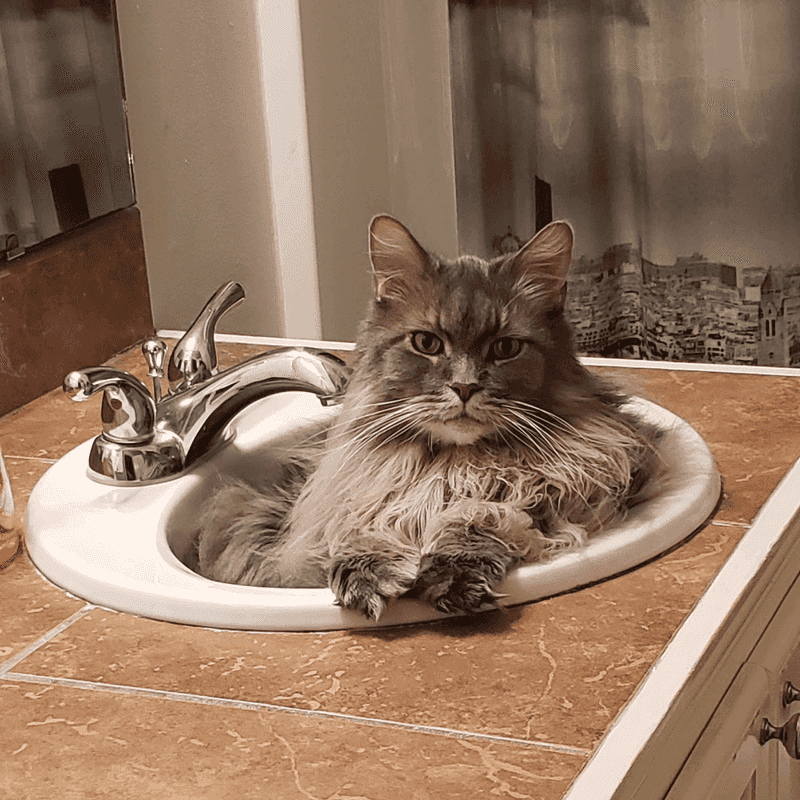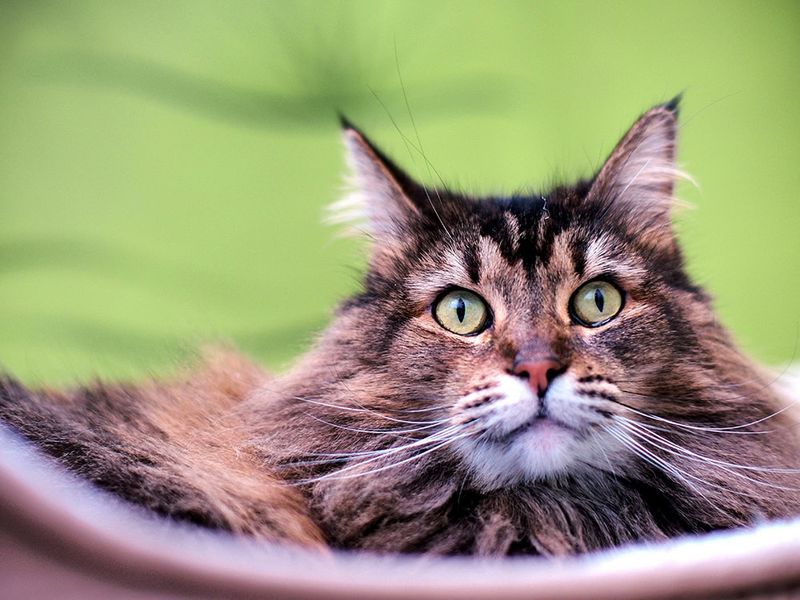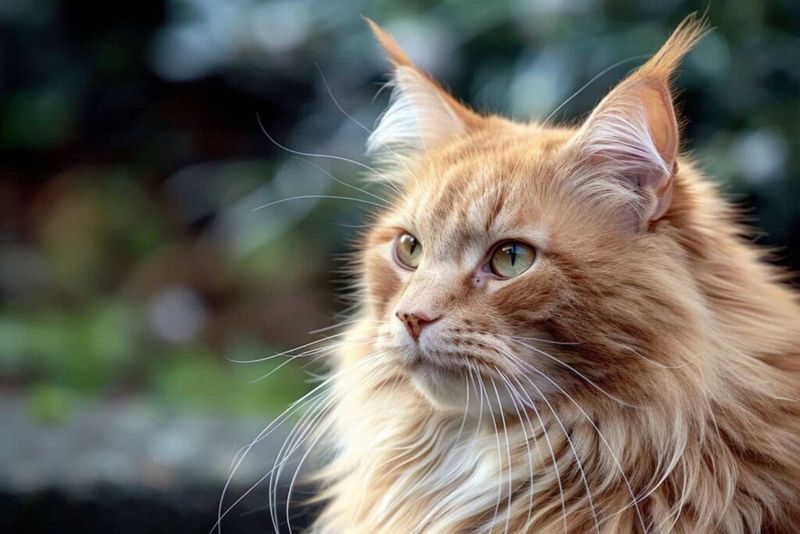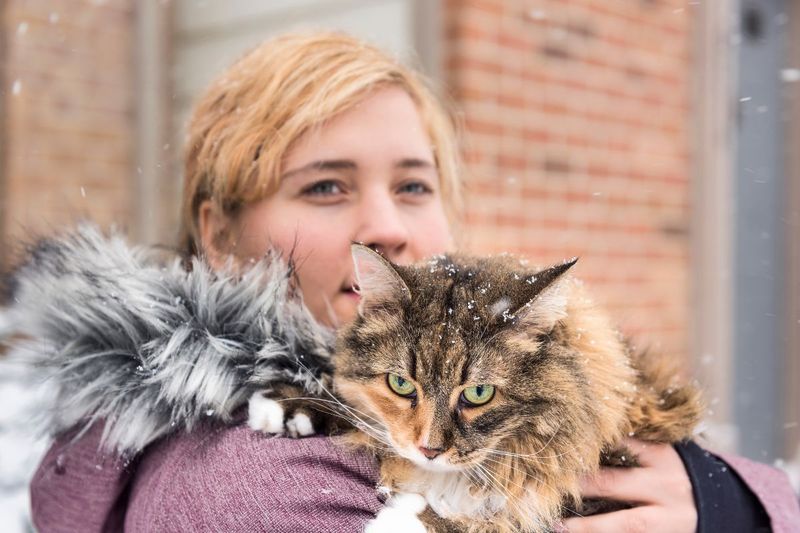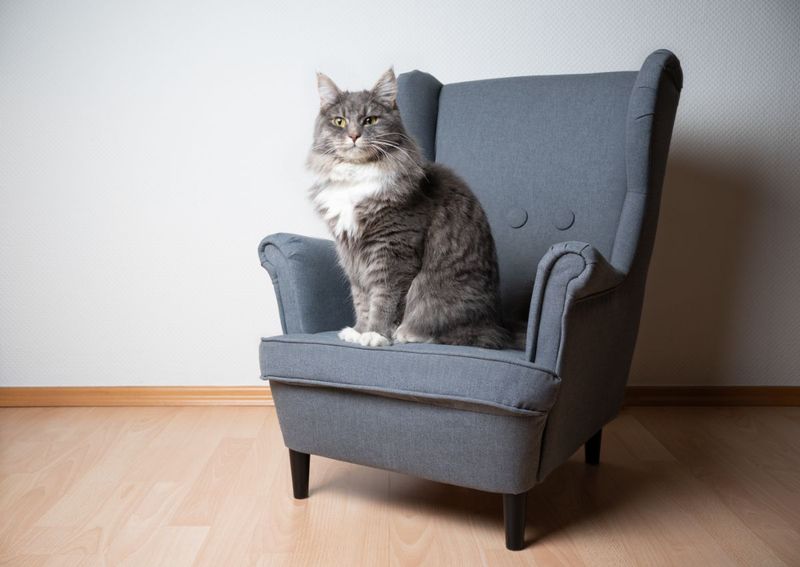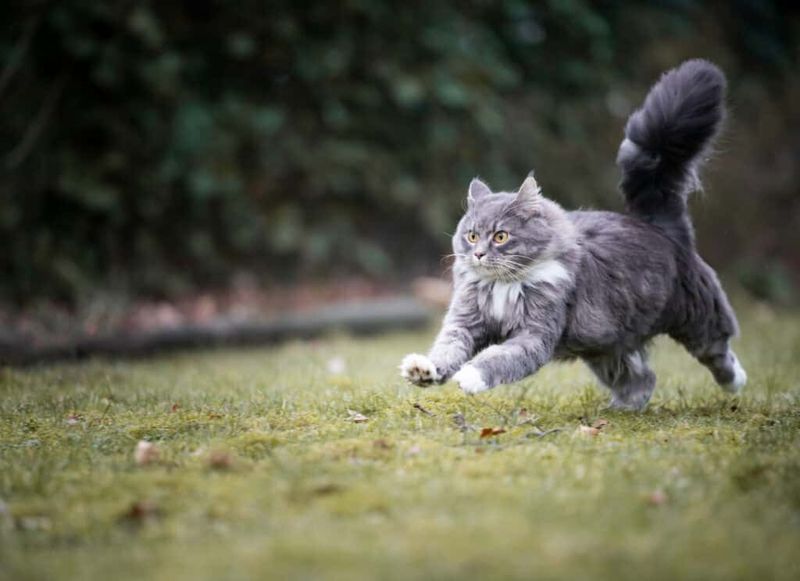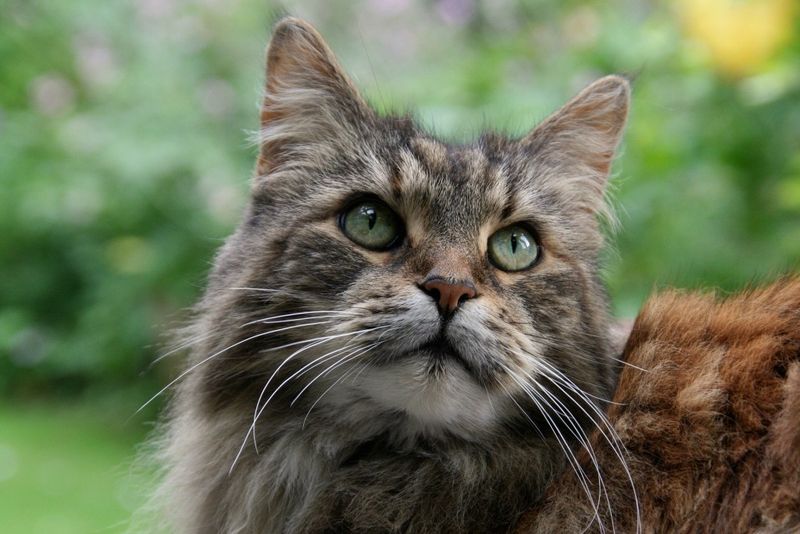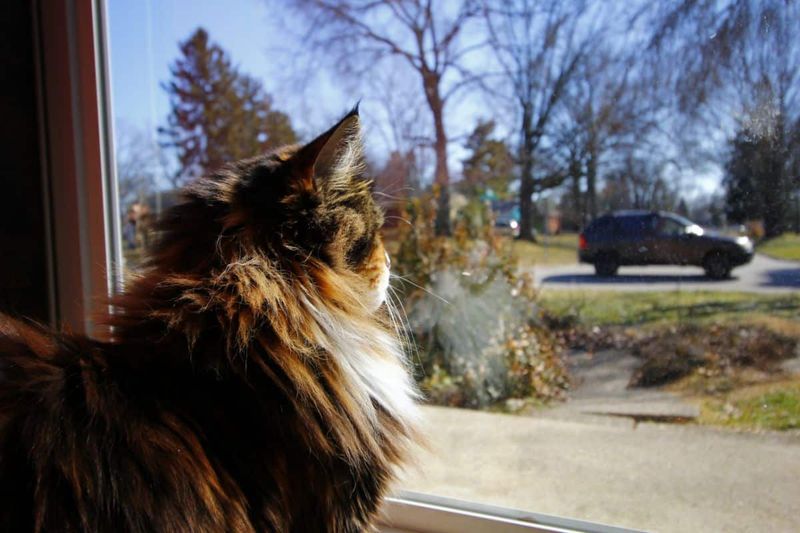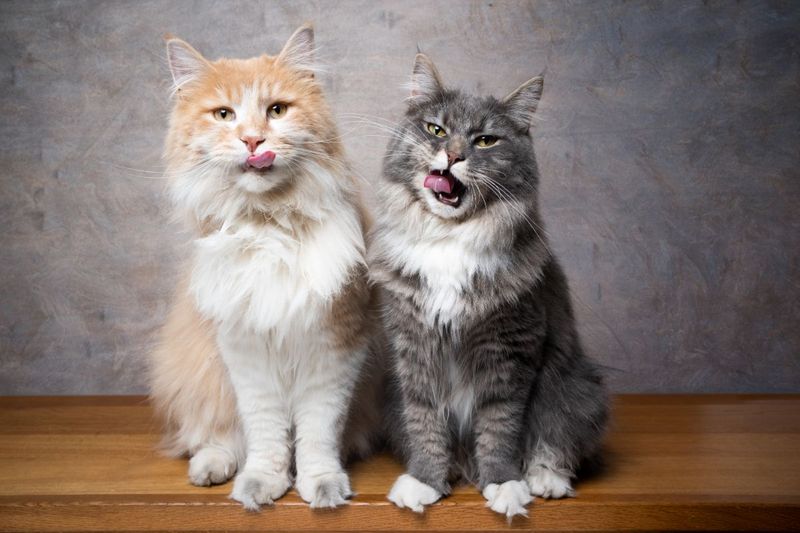📖 Table of Content:
- 1. Massive Size Requirements
- 2. Endless Fur Everywhere
- 3. Costly Food Bills
- 4. Demanding Grooming Schedule
- 5. Longer Lifespan Commitment
- 6. Hefty Veterinary Expenses
- 7. Space-Hogging Sleeping Habits
- 8. Constant Vocal Commentary
- 9. Destructive Climbing Tendencies
- 10. Water-Obsessed Behavior
- 11. Stubborn Intelligence Issues
- 12. Expensive Initial Investment
- 13. Challenging Travel Arrangements
- 14. Furniture-Destroying Claws
- 15. Overwhelming Prey Drive
- 16. Temperature Sensitivity Issues
- 17. Social Dependency Problems
- 18. Slow Maturation Timeline
Maine Coon cats are known as the gentle giants among domestic cats. Their large size is matched by their friendly and sociable nature. These traits have earned them a special place in many homes around the world.
Their luxurious, thick coats give them a majestic appearance that stands out in any setting. Beyond looks, their playful and affectionate personalities make them excellent companions. However, owning a Maine Coon requires more than just admiration.
Potential owners should be aware of the breed’s specific needs, including grooming and space requirements. Their size and activity level can present challenges in smaller living environments. Careful consideration is important before welcoming one into a household.
1. Massive Size Requirements
Maine Coons are the largest domestic cat breed, often weighing 15-25 pounds. Your standard cat furniture won’t cut it for these giants. They need jumbo-sized cat trees, extra-large litter boxes, and spacious lounging areas. Small apartments quickly feel cramped when sharing with a Maine Coon.
Their impressive size means they take up significant space on your furniture, bed, and lap. Many owners find themselves rearranging their homes to accommodate these oversized felines. Their large frames also mean they can reach countertops, shelves, and other areas you might want to keep cat-free.
2. Endless Fur Everywhere
The luxurious double coat of a Maine Coon creates a fur situation that’s nearly impossible to manage. Their long, silky fur doesn’t just shed—it explodes seasonally, covering every surface in your home with a new layer of fluff. Dark clothing becomes instantly decorated with light-colored fur.
Your vacuum cleaner will work overtime, and you’ll need to budget for lint rollers by the case. Even with daily brushing, fur tumbleweeds will roll across your floors. Food, drinks, and even the inside of your refrigerator won’t escape the fur invasion.
3. Costly Food Bills
With their impressive size, Maine Coons naturally need more food than typical cats. Their daily intake can be twice as much, which means a larger food budget is necessary. High-quality meals are important to ensure they stay healthy and maintain their luxurious fur.
Cheap cat food won’t provide the nutrition they need, leading to potential health issues and even more expensive vet bills down the road. Many Maine Coon owners report spending $75-100 monthly just on cat food, not including treats.
4. Demanding Grooming Schedule
Maintaining that impressive coat takes commitment. To keep mats and tangles at bay, Maine Coons require brushing several times each week. When shedding season hits, daily grooming becomes necessary and can take up a good deal of time.
Their fur easily collects debris, litter, and food particles. Skipping grooming sessions isn’t an option unless you want your beautiful cat to develop uncomfortable mats that may require professional attention. Professional grooming appointments for Maine Coons cost more than standard cats due to their size and coat volume. Many owners spend hundreds yearly on grooming services.
5. Longer Lifespan Commitment
Maine Coons typically live 12-15 years, but many reach 18-20 with good care. This lengthy lifespan means you’re committing to two decades of responsibility for food, healthcare, and daily attention. Life circumstances change—careers shift, families grow, and living situations evolve.
A Maine Coon acquired in your twenties will likely still need care when you’re approaching middle age, potentially complicating major life transitions. Their attachment to their humans makes rehoming traumatic for them. Taking on this breed means being absolutely certain you can provide consistent care for potentially 20 years.
6. Hefty Veterinary Expenses
This breed is prone to health issues like hypertrophic cardiomyopathy, hip dysplasia, and spinal muscular atrophy. Regular check-ups and tests to catch these conditions early often come with a high price tag. Because Maine Coons are larger cats, medication doses are higher, increasing the cost of treatments such as flea prevention and antibiotics.
Even routine procedures like dental cleanings cost more due to the increased anesthesia requirements. Emergency care becomes particularly expensive. A single serious health episode can result in thousands in vet bills.
7. Space-Hogging Sleeping Habits
Maine Coons are notorious bed hogs. Their substantial size means they take up significant space on your mattress, often pushing humans to the edge during the night. A king-sized bed quickly feels like a twin when sharing with one of these cats. They’re also heat-seeking missiles, often positioning themselves directly on your chest or face while you sleep.
Many owners report waking up gasping for air beneath a heavy, furry blanket of Maine Coon. Their preference for sleeping with their humans means you’ll rarely get a night to yourself—privacy becomes a distant memory with these affectionate giants.
8. Constant Vocal Commentary
Known for their talkative nature, Maine Coons use a wide range of sounds beyond meowing, including chirps and trills. They seem to carry on ongoing chats that can last all day. Remote workers may experience unexpected feline interruptions during calls. These cats are often most vocal at night or dawn, letting everyone know when it’s time to wake up.
Their distinctive voice carries through walls and closed doors, making it impossible to ignore their demands. Unlike some breeds that quiet down with age, Maine Coons often become more talkative as they grow comfortable in their environment.
9. Destructive Climbing Tendencies
Climbing comes naturally to Maine Coons, thanks to their powerful legs that propel them to lofty spots. Shelves and cabinets are common targets for their curiosity. Because they’re heavy, fragile possessions and houseplants may be at risk when these cats explore.
Expensive electronics, picture frames, and decor items often become casualties of their adventures. Even sturdy furniture can show wear from supporting their bulk during climbing expeditions. Cat-proofing for a Maine Coon goes beyond basic measures—you’ll need industrial-strength solutions to keep your belongings safe.
10. Water-Obsessed Behavior
Unlike typical cats, Maine Coons have a peculiar fascination with water. They’ll dip paws in your drinking glasses, splash in toilets, and some even join you in the shower. Keeping bathroom doors closed becomes a household rule with these water-loving felines. Many Maine Coons learn to turn on faucets but never master turning them off.
Owners have returned home to find sinks overflowing and water bills skyrocketing. Their water dishes become splash zones, creating puddles around feeding areas. Electronics need extra protection from these aquatic adventures—keyboards, phones, and tablets are particularly vulnerable to their wet-pawed investigations.
11. Stubborn Intelligence Issues
Combining smarts with stubbornness, Maine Coons quickly master opening doors and cabinets. Even child-proof locks become puzzles they’re eager to solve. Their problem-solving skills often land them in trouble beyond what typical cats experience.
Many owners report finding their Maine Coons in seemingly impossible locations or situations. This intelligence demands mental stimulation—without it, they’ll create their own entertainment at your expense. Training becomes a negotiation rather than instruction. They understand commands perfectly, but decide whether they feel like complying.
12. Expensive Initial Investment
Purebred Maine Coon kittens from reputable breeders typically cost between $1,000-$2,500, far more than adopting from a shelter. This steep entry price doesn’t include the specialized equipment needed for these oversized cats. You’ll need heavy-duty, jumbo-sized cat furniture that costs significantly more than standard versions.
Extra-large litter boxes, sturdy carriers, and special grooming tools add hundreds more to your startup costs. Many potential owners underestimate these initial expenses, focusing only on the purchase price without considering the specialized gear these giants require.
13. Challenging Travel Arrangements
Traveling with a Maine Coon presents significant logistical challenges. Their size often exceeds airline cabin restrictions, forcing owners to use cargo services or find pet-sitters instead. Standard carriers are too small, requiring expensive specialized transportation equipment.
Hotels that accept pets often have weight limits that exclude Maine Coons. Road trips become complicated when traveling with these large cats who need space to stretch out and regular access to litter boxes. Many Maine Coon owners find their vacation options severely limited, as the cost and stress of boarding these sensitive giants can outweigh the benefits of traveling.
14. Furniture-Destroying Claws
Maine Coons have exceptionally large, powerful claws that make short work of furniture, carpet, and curtains. Their scratching needs exceed those of average cats, requiring multiple sturdy scratching posts throughout your home. Standard scratching posts often collapse under their enthusiastic scratching sessions.
You’ll need to invest in heavy, stable scratching furniture specifically designed for large breeds. Even with appropriate scratching outlets, many Maine Coons still damage furniture. Their size gives them reach to scratch areas other cats can’t access, making complete protection of your belongings nearly impossible.
15. Overwhelming Prey Drive
Originally bred as working cats, Maine Coons have strong hunting instincts that are still very much alive. Small pets like hamsters, birds, and even fish tanks can attract their attention. Because of their predatory nature, living with small animals can be risky. Toy mice alone won’t satisfy their hunting drive.
They’ll hunt anything that moves—including your feet under blankets, which can lead to painful nighttime attacks. Outdoor time must be carefully supervised, as Maine Coons are efficient hunters that can decimate local wildlife. Their impact on bird populations can be significant if allowed to roam freely.
16. Temperature Sensitivity Issues
Because of their thick coats, Maine Coons don’t do well in hot weather. Cooling systems are a must-have to keep them comfortable in warmer homes. Owners often see a rise in energy bills during the hotter months. In summer, Maine Coons tend to slow down and show signs of discomfort.
Their activity levels drop significantly, and they seek out cool spots like bathroom tiles or sinks. Finding cool sleeping areas becomes their primary focus. Heat-related health issues are common in this breed when temperatures rise, potentially leading to emergency vet visits during hot weather.
17. Social Dependency Problems
Strong emotional bonds make Maine Coons prone to separation anxiety during periods of solitude. Their owners often find them following closely, even during private moments. These social cats have little concept of personal space. Spending many hours away from home can cause them distress.
They don’t just prefer human company—they demand it, often becoming depressed or developing behavioral problems when left alone too long. This dependency means your schedule revolves around ensuring your Maine Coon receives adequate attention and companionship throughout each day.
18. Slow Maturation Timeline
Maine Coons take 3-5 years to reach full physical and emotional maturity, much longer than average cats. This extended kittenhood means years of energetic, sometimes destructive behavior before they settle down into adulthood. While other cats might calm down after their first year, Maine Coons retain kitten-like playfulness well into what would be middle age for other breeds.
Furniture climbing, midnight zoomies, and playful ambushes continue long after you might expect more sedate behavior. Their slow development also means delayed litter box reliability in some cases, testing your patience during the extended training period.
